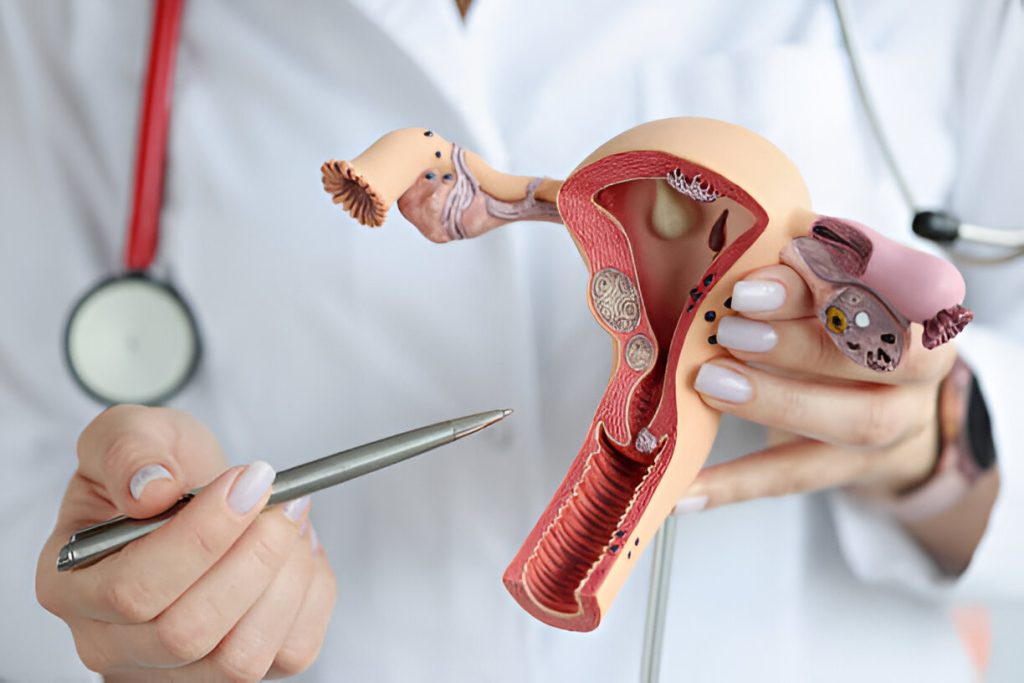
Menstruation is a part of every woman’s life. Menstruation occurs between the ages of 12 to 15 in the majority of women. But have you wondered about the parts of the female reproductive system? A female reproductive system has multiple parts, one of which is the fallopian tube.
This blog will help you understand more about fallopian tubes and their role in the menstrual cycle.
What are fallopian tubes?
The fallopian tubes are an essential part of the female reproductive system. These thin, tube-like structures connect the ovaries to the uterus, providing a passage for the egg to travel during ovulation. When one or both fallopian tubes become blocked, it can prevent the egg from reaching the uterus, causing infertility.
However, many wonder if a fallopian tube blockage can also impact the regularity of their menstrual cycle.
What is a blocked fallopian tube?
The fallopian tubes are thin, tube-like structures connecting the ovaries to the uterus, providing a passage for the egg to travel during ovulation. When one or both fallopian tubes become blocked, it can prevent the egg from reaching the uterus, causing infertility. However, many wonder if a fallopian tube blockage can also impact the regularity of their menstrual cycle.
Can fallopian tube blockage affect periods?
In most cases, fallopian tube blockage does not directly cause menstrual irregularities. The menstrual cycle is primarily regulated by hormonal changes controlled by the ovaries and the brain. Since fallopian tube blockage is a mechanical issue, it does not usually interfere with hormone production or release.
However, certain underlying conditions that cause fallopian tube blockage, such as endometriosis, pelvic inflammatory disease (PID), or fibroids, can impact hormonal balance, leading to irregular to regular menstruation. For instance, if an infection like PID causes scarring in the fallopian tubes, it may also affect the ovaries, potentially disrupting the hormonal cycle.
What are the common causes of a fallopian tube blockage?
Several factors can lead to fallopian tube blockage, including:
Pelvic Inflammatory Disease (PID): A common cause of tubal blockage due to infection and scarring.
Endometriosis: A condition where tissue similar to the lining of the uterus grows outside the uterus, which can affect the fallopian tubes.
Surgery: Prior surgeries in the pelvic region can cause adhesions leading to blockage.
Ectopic Pregnancy: A pregnancy occurring within the fallopian tube can damage it, leading to blockage.
What are the symptoms of blocked fallopian tubes?
While fallopian tube blockage may not directly cause irregular periods, it can manifest through symptoms such as:
- Painful menstruation
- Chronic pelvic pain
- Difficulty in conceiving
How is a blocked fallopian tube diagnosed?
The diagnosis of fallopian tube blockage often involves imaging tests like:
Hysterosalpingography (HSG): An X-ray procedure that reveals blockages in the tubes.
Laparoscopy: A minimally invasive surgical procedure that directly visualizes the reproductive organs.
How can blocked fallopian tubes be treated?
If diagnosed with fallopian tube blockage, the treatment depends on the severity and cause:
The treatment for blocked fallopian tubes depends on the underlying cause and the extent of the blockage. Here are some of the common treatment options:
Laparoscopic Surgery: A minimally invasive procedure that removes scar tissue or clears blockages in the tubes.
Tubal Cannulation: A procedure that uses a thin tube (catheter) to open the blocked fallopian tubes.
In Vitro Fertilization (IVF): This process involves fertilizing an egg with sperm outside the body, and the resulting embryo is placed in the uterus.
Salpingectomy: This surgery removes one or both fallopian tubes, often recommended in severe cases.
Salpingostomy (Neosalpingostomy): A procedure that creates a new opening in a blocked tube to restore its function, typically done using laparoscopy.
You can reach out to the fallopian tube recanalization in Coimbatore if you are looking for blocked fallopian tube treatment.
Do periods occur if there is a fallopian tube blockage?
Since the eggs cannot reach the uterus due to the blockage, it may lead to bleeding or cause irregular periods.
Can you ovulate if you have blocked fallopian tubes?
Ovulation can occur even if you have fallopian tube blockage but the sperm cannot reach the egg causing infertility.
Can you prevent fallopian tube blockage?
Most cases of fallopian tube blockages are caused by pelvic infections. While many of these infections are linked to sexually transmitted infections (STIs), not all are. Regular STI screenings and seeking prompt treatment for any unusual symptoms can help prevent tubal infertility. Early detection and treatment of an infection can prevent the formation of scar tissue.
However, just because an infection is silent doesn’t mean it’s harmless. The longer an untreated infection persists, the higher the chances of scar tissue developing or the tubes becoming inflamed or blocked. Many infections are not severe and may not cause noticeable symptoms.
If an infection is diagnosed, starting antibiotic treatment immediately is crucial to minimize complications.
What are the complications of blocked fallopian tubes?
The most common risk of treating blocked fallopian tubes is an ectopic pregnancy. This can happen if a tube is partially blocked—allowing the egg to be fertilized but trapping it in the tube instead of reaching the uterus. Such a pregnancy is dangerous and is considered a medical emergency.
Additionally, surgeries that remove part of a fallopian tube can also increase the chances of an ectopic pregnancy. Because of these risks, doctors often recommend IVF (In Vitro Fertilization) for women with blocked fallopian tubes who are otherwise healthy, as it bypasses the tubes altogether.
Important Takeaway:
Blocked fallopian tubes are a common cause of infertility, but you don’t have to face this challenge alone. Getting an early diagnosis and discussing treatment options with the best gynecology doctor in Coimbatore can help you make the best choices for your health and future family plans.
